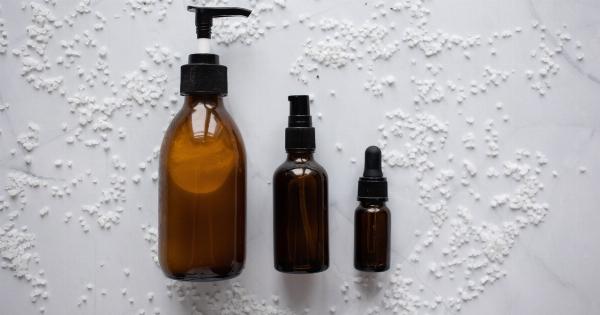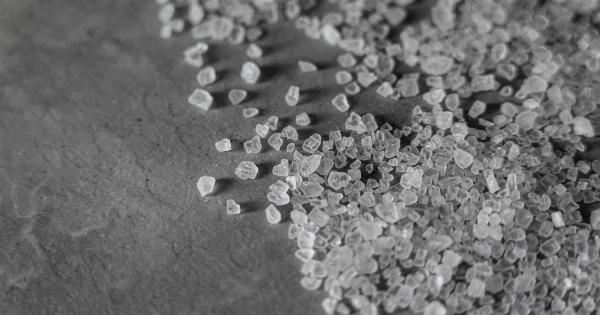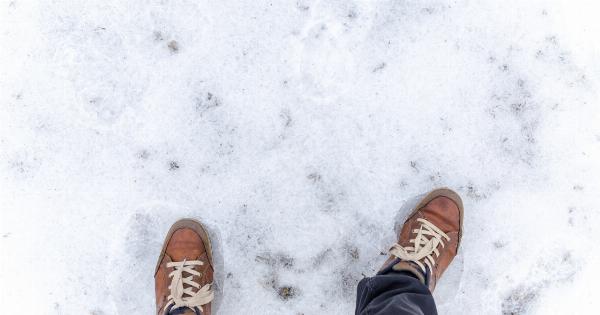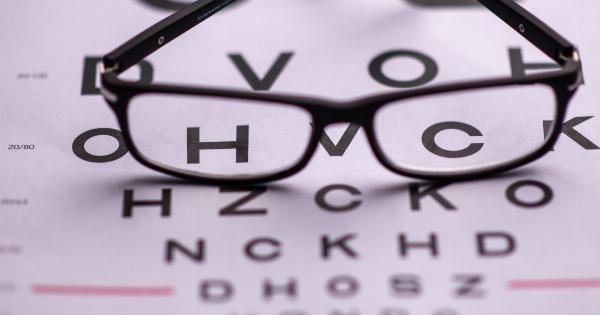Water weight or weight caused by excess fluid in the body, can be caused by several factors, including too much salt intake and dehydration, and it can make you feel bloated and uncomfortable.
However, reducing water weight and excess salt is not a complex process. Here are some easy ways you can reduce water weight and excess salt:.
1. Drink More Water
Drinking more water can help keep you hydrated and flush out excess salt in the body. The body needs enough water to function properly, and not drinking enough water can cause water retention.
So, it is recommended to drink at least 8-10 glasses of water per day. In addition, drinking water can also help you feel fuller and eat less, which may help with weight loss.
2. Cut Back on Salt
Excess salt intake can cause water retention and increase blood pressure. It is recommended to consume no more than 2,300 milligrams of sodium per day, which is approximately one teaspoon of salt.
Cutting back on salt can help reduce water weight and prevent health issues associated with excessive salt intake. To reduce salt intake, avoid processed foods, restaurant meals, and pre-packaged snacks. Instead, add flavor to your meals with herbs and spices.
3. Exercise Regularly
Exercise can help reduce water weight and excess salt by increasing sweat and urine production. It can also help improve circulation, which may reduce water retention. Aim to exercise at least 30 minutes a day, most days of the week.
You can try exercises like cycling, swimming, or running to get your heart rate up and burn calories.
4. Increase Your Protein Intake
Eating more protein can help reduce water weight by increasing urine production. Protein also helps build muscles, which can help burn calories and reduce overall body weight.
Try adding protein-rich foods like chicken, fish, tofu, and beans to your diet.
5. Add More Potassium-Rich Foods to Your Diet
Potassium is an essential mineral that helps balance fluids in the body and can help reduce water weight. Foods high in potassium include bananas, sweet potatoes, spinach, avocados, and salmon.
Try adding some of these foods to your diet to help reduce water weight and promote overall health.
6. Get Enough Sleep
Getting enough sleep can help reduce water weight and excess salt by regulating hormones that control fluid balance. Lack of sleep can cause hormone imbalances that lead to water retention and weight gain.
Aim to get at least 7-8 hours of sleep per night to help keep hormones balanced and promote overall health.
7. Reduce Stress
Stress can cause hormone imbalances that lead to water retention and weight gain. Aim to reduce stress by practicing stress-reducing techniques like yoga, meditation, or deep breathing exercises.
You can also try taking a warm bath or reading a book to relax and de-stress.
8. Avoid Processed Foods
Processed foods are high in salt, preservatives, and additives that can cause water retention and weight gain. Try to avoid processed foods and instead eat whole, natural foods like fruits, vegetables, lean proteins, and whole grains.
9. Limit Alcohol Consumption
Alcohol can cause dehydration and water retention, which can lead to weight gain and bloating. Try to limit alcohol consumption to no more than one drink per day for women and two drinks per day for men.
Choose low-alcohol options like wine or light beer, and always drink plenty of water to stay hydrated.
10. Seek Medical Advice
If you are experiencing chronic water retention or weight gain, it may be a sign of an underlying medical condition. If you have concerns, always consult your doctor to seek medical advice and treatment.
By implementing these easy ways, you can reduce water weight and excess salt, and promote overall health and well-being.






























